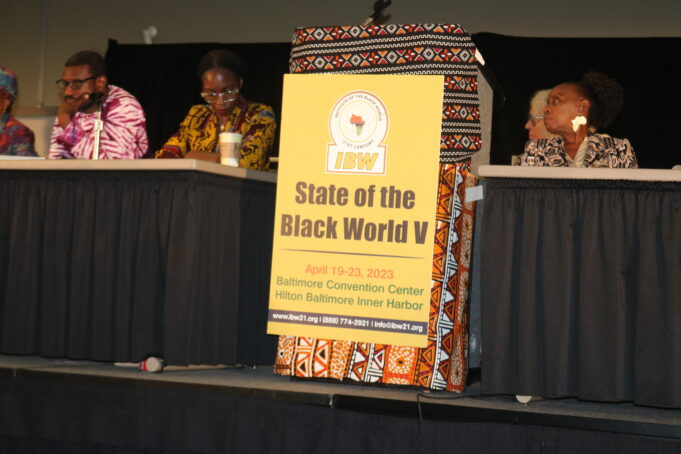BALTIMORE—Ron Daniels, president of the Institute of the Black World 21st Century (IBW 21), announced the groundwork for a new world order rooted in unity at its recent international conference. The gathering also offered solutions and stressed the need for solidarity among Black people in the U.S. and abroad.
The agenda coming out of the conference included establishing a support program for Haiti through partnerships with key organizations, hosting a global summit in Jackson, Miss., focusing on “water as a human right,” and other efforts. Additionally, IBW21 will celebrate the birth of former Grenadian President Maurice Bishop in May.
Attendees from around the world came together for the much-anticipated conference at the Baltimore Convention Center from April 19-23, which was themed, “Global Africans Rising:
Empowerment, Reparations and Healing.”
Expert workshops were held to identify issues, followed by extensive discussions to offer solutions and the development of the conference’s “articles of intent.”
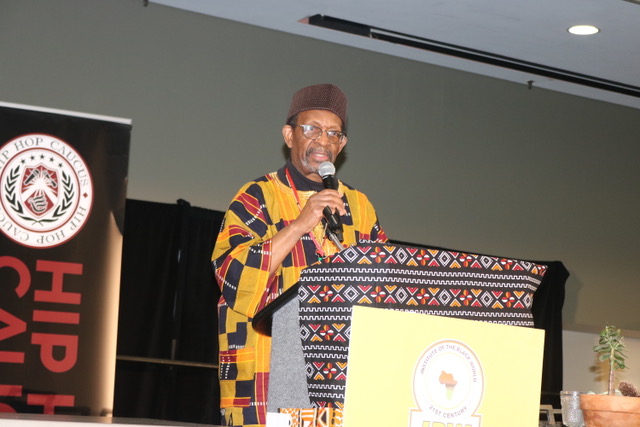
Workshops and sessions provided participants with valuable information. Kofi Mohammed, delivered a compelling message at the State of Africa workshop. He emphasized the importance of developing trade among African countries to drive growth and prosperity.
Mr. Mohammed highlighted the Continental Free Trade Area as a bright spot and urged for the development of a global Africa without capitalism problems. He also challenged the current African focus on trade with Europe and called for reforms to the system.
During the workshop, Mel Foote, president of Constituency for Africa, stated that millions of Africans had been killed for the sake of capital. He emphasized that colonialism persists as African economies remain under external control. The fact that Europe is still the source of imported food for Africans is a travesty, he argued.
Barbadian Ambassador David Comissiong provided valuable insight into the advancements made in the Caribbean via the 20-member CARICOM group. Noteworthy accomplishments include the establishment of a regional university, a disaster fund, and peaceful government transitions through elections.

Amb. Comissiong drew attention to the ongoing reparations campaign, emphasizing the importance of understanding the historical injustices and valid demands. He also stressed the impact of COVID-19 as a wake-up call.
“The islands faced challenges in receiving medical supplies from the West, leading to a shift towards sourcing them from Africa,” he said. “It is crucial to prioritize building strong relationships with Africa for long-term benefits. Additionally, addressing food supply issues is a top priority, with progress being made toward tackling these challenges with bravery and determination,” he added.
“Our progressive activity has resulted in the establishment of embassies and partnerships on the continent, as well as efforts to create direct air flights between the islands and Africa. Further, we have formed business councils between the Caribbean and Africa, demonstrating our commitment towards progress and growth.”
Amb. Comissiong also stressed that the key to success and prosperity throughout the Black diaspora is unity. “Haiti possesses valuable population resources; we have valuable territorial space. It is imperative to stabilize the country.
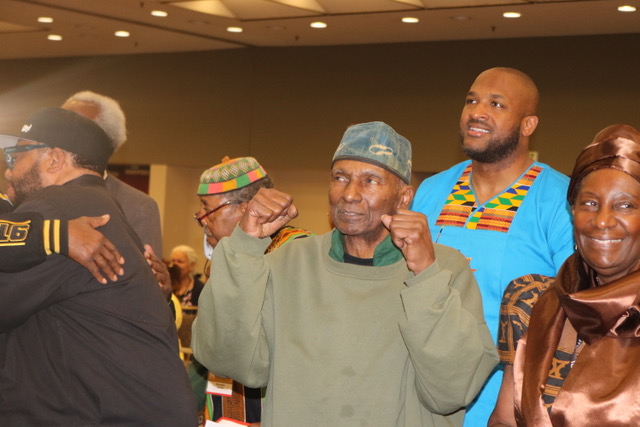
As a unified people, we share a special bond with Cuba, evidenced by our embassy presence in all CARICOM nations. The United States must end its blockade against Cuba for progress to be made. Let us come together for the betterment of our nations.”
The student youth leadership portion of the conference provided valuable insights on issues related to operational unity. Elijah Miles is chairman of the Tendea Family, an anti-violence organization based in Baltimore. He outlined the importance of putting people first while serving the community.
The point was made on the importance of finding common ground as a crucial component to building a new world, and that it is essential to put a stop to ideological bickering. The conference proposed solutions such as coalition building, the formation of treaties among organizations, and collaboration to address common problems. With the technology Blacks possess today, they have the potential to reach billions of people and must also be willing to work toward building a better future together, noted attendees.
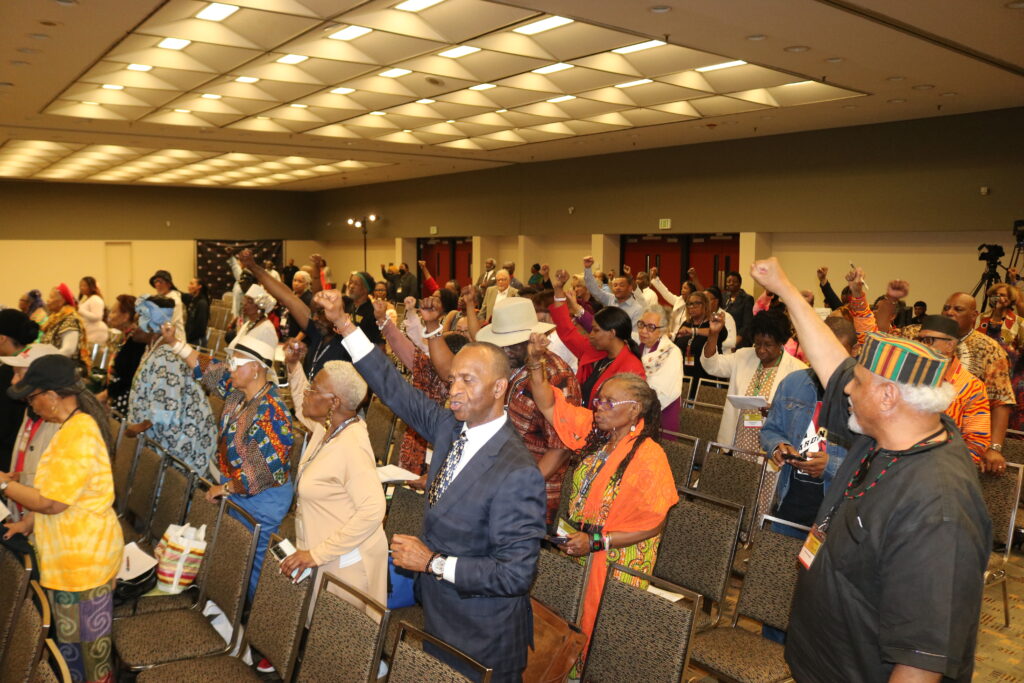
The Business Legacy Forum was a standout feature, helmed by author and businessman Dr. George Fraser. During the discussion, he brought to light the fact that not one of the 110 Black history museums across the country has celebrated an exhibit centered on the accomplishments and progress of Black-owned businesses.
Dr. Fraser pointed out that 400 years of Black business development has remained largely unrecognized. This represents a significant contradiction, he argued. “Our business leaders should serve as our role models and heroes,” he said.
The business workshop introduced a promising initiative called the New Black Wall Street model, being developed by Bill Allen in Georgia. Dr. Fraser spoke about his plans to establish a museum in Atlanta devoted to Black-owned businesses. The session emphasized the need for a shift in mindset toward ownership and encouraged attend is new paradigm.
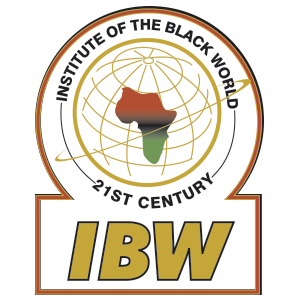
According to Mr. Allen, the foundation for dreams lies in vision. His vision for the New Black Wall Street comprises of 200 businesses and an educational element, all grounded in the principles of equality and ownership. He emphasized the importance of turning dreams into reality by pushing boundaries and taking action. As Mr. Allen put it, “The eventual outcome is unknown when implementing dreams.
Dr. Fraser told The Final Call that it is no longer just a goal but it is an expectation to create working jobs for Black people. His vision is for Black businesses to become the number one employer of Black people.
To turn this vision into reality, Dr. Fraser said his workshop group is focusing on instilling an entrepreneurial mindset in young children to encourage them to create jobs for themselves and their future generations rather than just seeking a job. He believes that this shift in mindset is crucial to the success of Black businesses and entrepreneurship.
During the State of the Black World Conference, a powerful moment arose during the presentation by Ugandan freedom fighter and politician, Bobi Wine. His impassioned plea for a unified Africa was hailed as a historical speech by conference convener Dr. Ron Daniels. Mr. Wine pointed out that if the plan for African liberation—initiated by the first prime minister of Ghana, Kwame Nkrumah, years ago—had been implemented, existing problems such as poverty would not exist.
He also highlighted the injustice of the Berlin Conference, which created artificial borders in African countries. “These borders must be abolished,” he said. Despite being rich in mineral resources, Africa is the poorest continent, which Wine believes is by design.
Despite being rich in mineral resources, Africa is the poorest continent, which Mr. Wine believes is by design. Relying on the IMF (International Monetary Fund) for loans is not the solution to building a prosperous continent, he argued. “Instead, we’ve been importing resources and contributing to Europe’s wealth. This issue was recognized long ago and now is the ideal time for action.
Our dependence on external forces has made us vulnerable, and we need to take responsibility for our own progress,” said Mr. Wine. “For a successful political system, we must prioritize a peaceful transition of power and eliminate autocracy. With a united Africa, we have the potential to become a global powerhouse. Let us come together to heal and transform our continent.”

Steven Golding, is president of the Universal Negro Improvement Association and the African Communities League in Kingston. He is also a member of the Jamaica National Council on Reparations. He shared his views on the significance of the conference with The Final Call, describing it as a crucial platform that brings together people from the Black community worldwide to engage in meaningful discourse, collaborate on ideas, work toward common goals, and foster a sense of unity. It serves as a valuable opportunity to promote solidarity within the global Black community, he stated.
During the mayor’s breakfast, Johnny Ford, former mayor of Tuskegee, Ala., praised Daniels as a visionary leader, crediting him for inspiring many Black Americans to run for office, including himself.
“As a community, we understand the urgency of the moment and the need to take action. It’s no longer a matter of relying on charity. Instead, we must focus on organizing, seeking reparations, and achieving economic empowerment through pooling our resources, knowledge, and technology,” said Mr. Ford. “Now is the time to act. While I still hold to the tenets of Booker T. Washington and (the Honorable) Elijah Muhammad, our priority is building a Black world, and the time to do so is now.”












